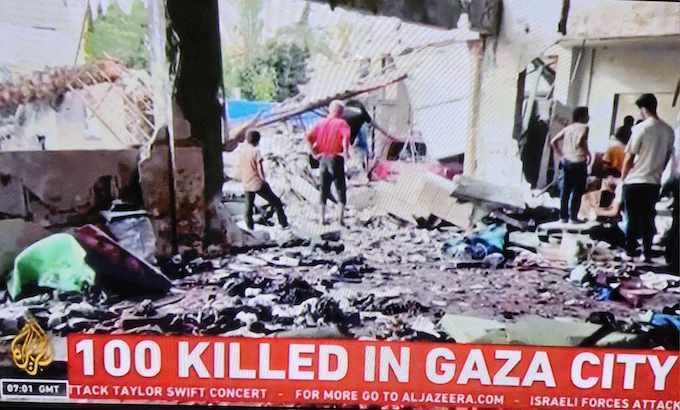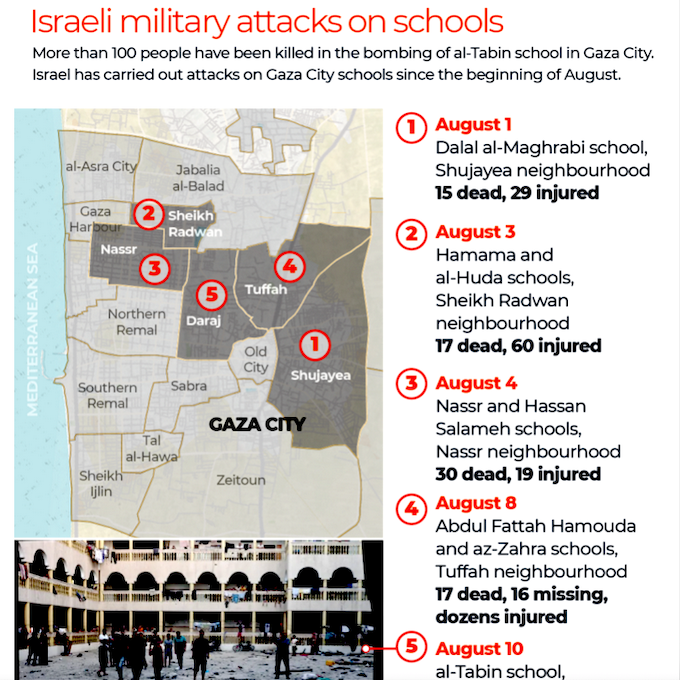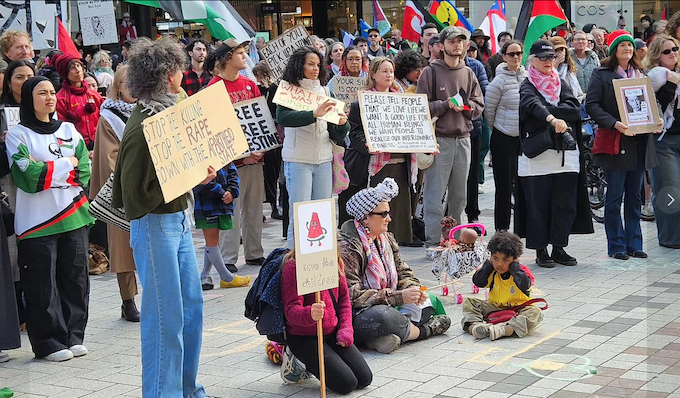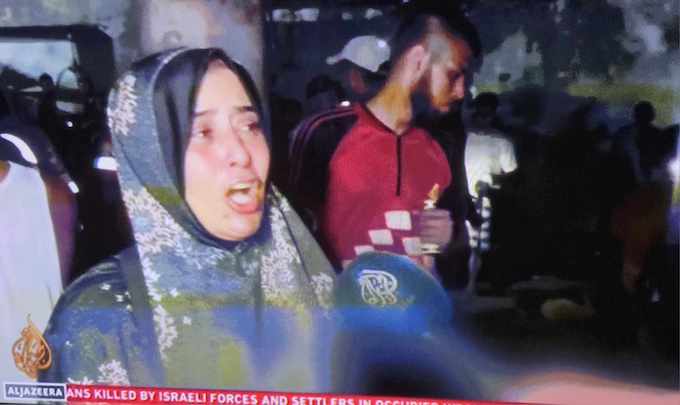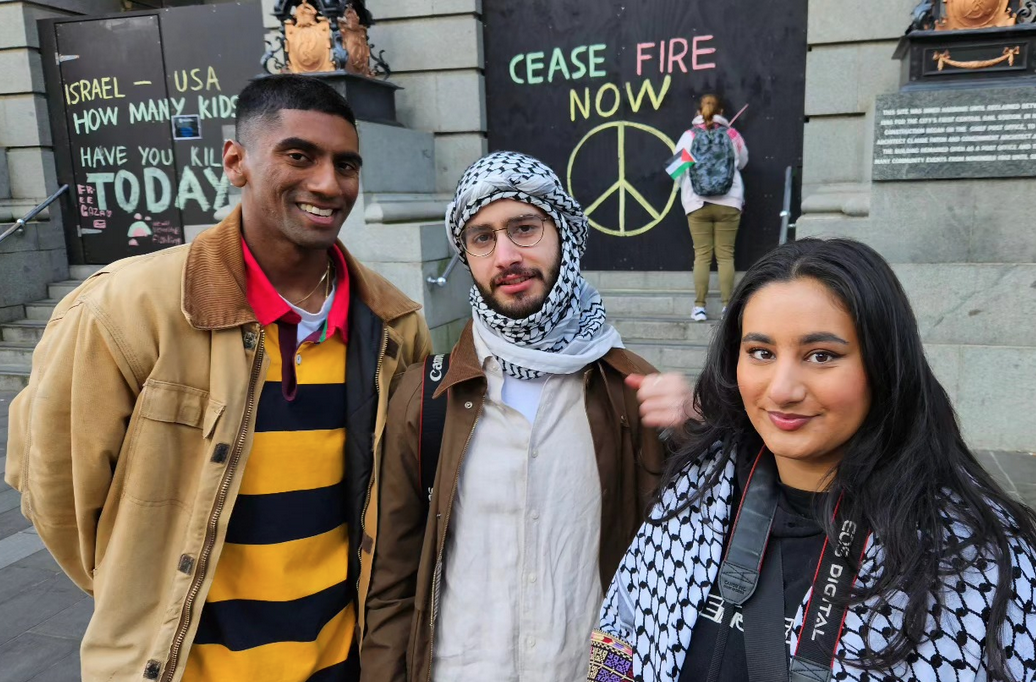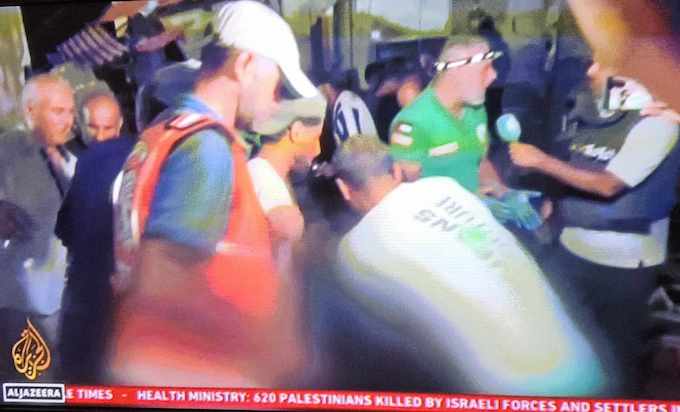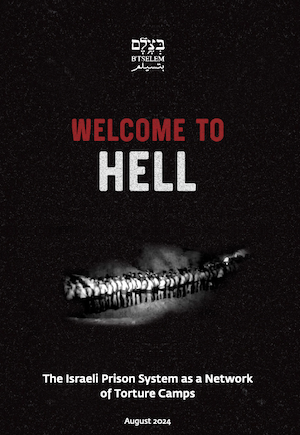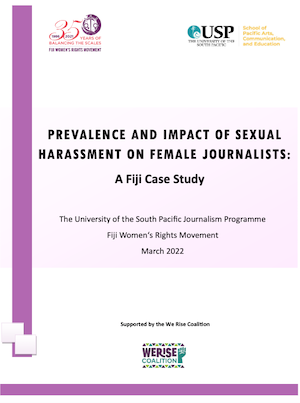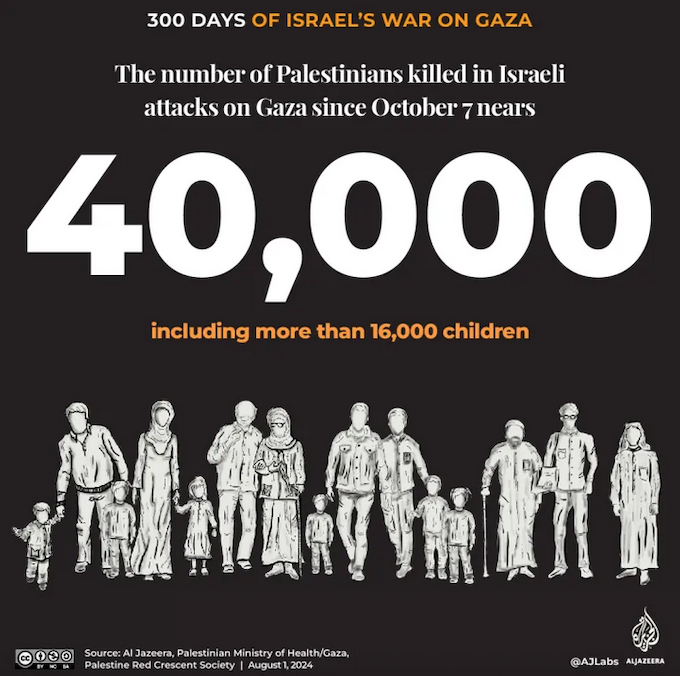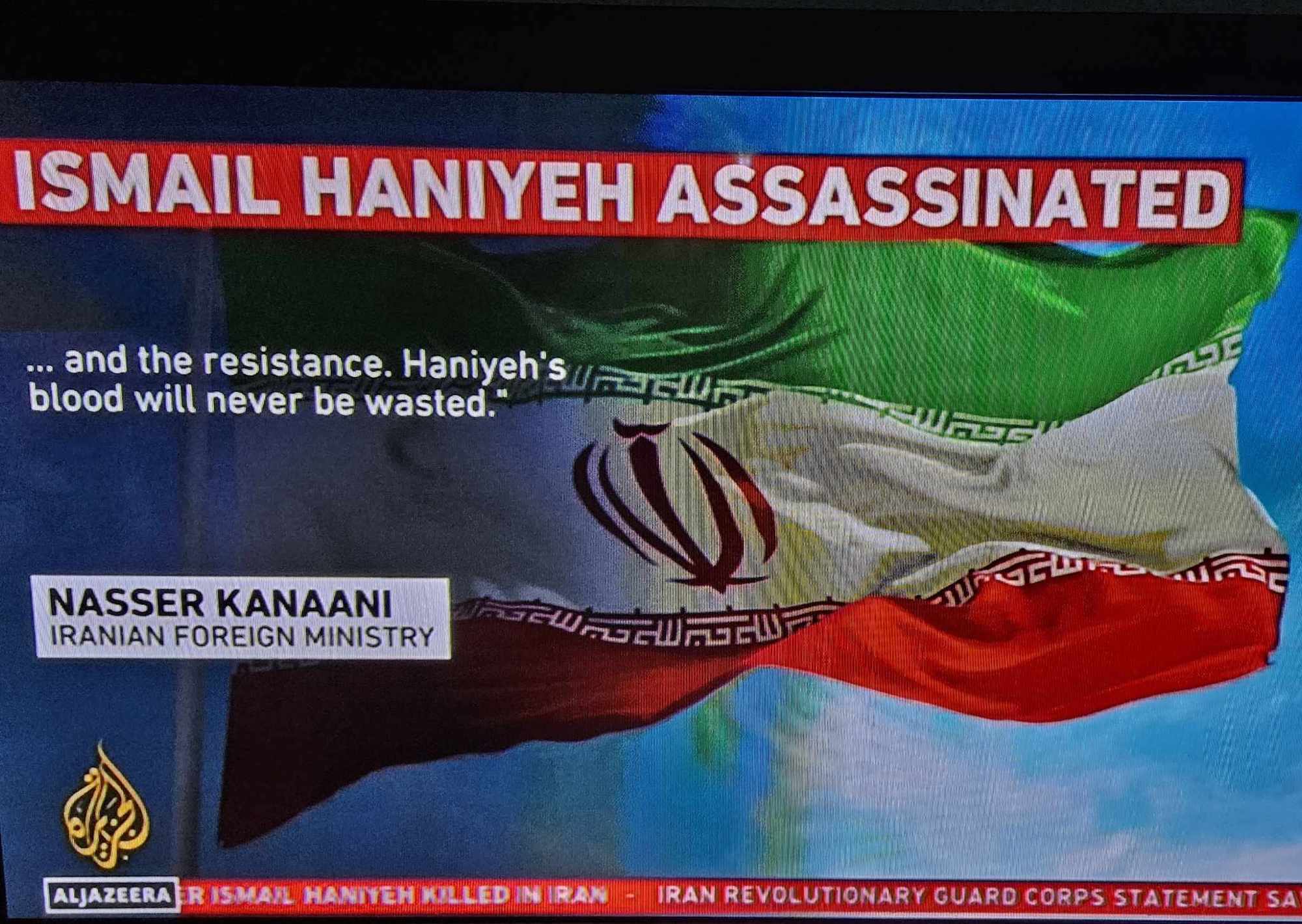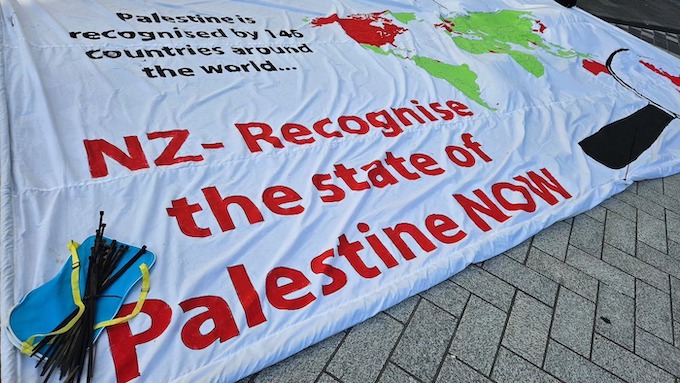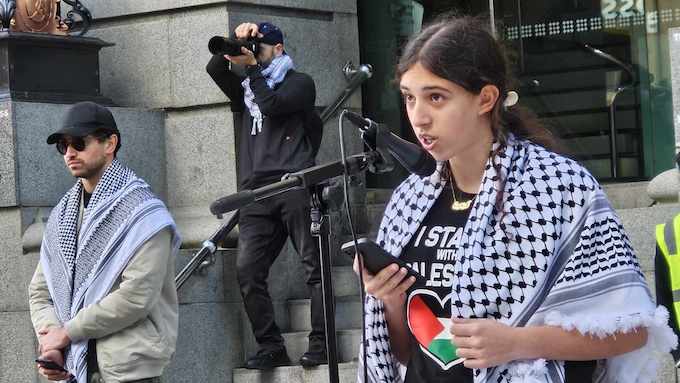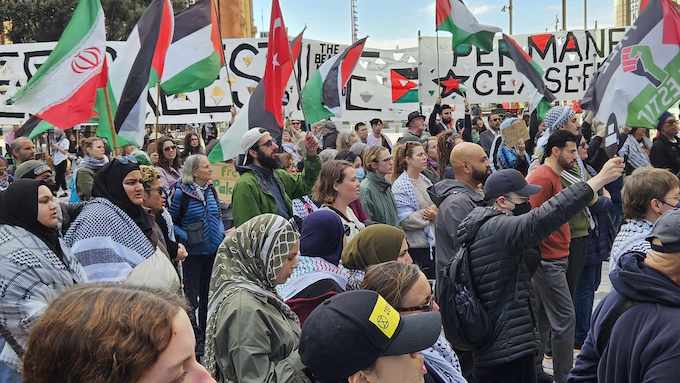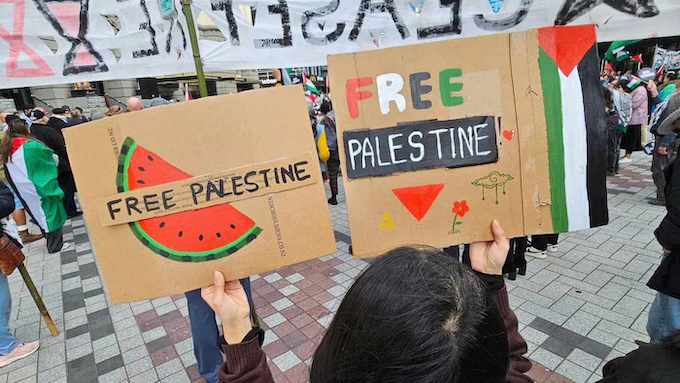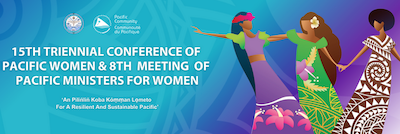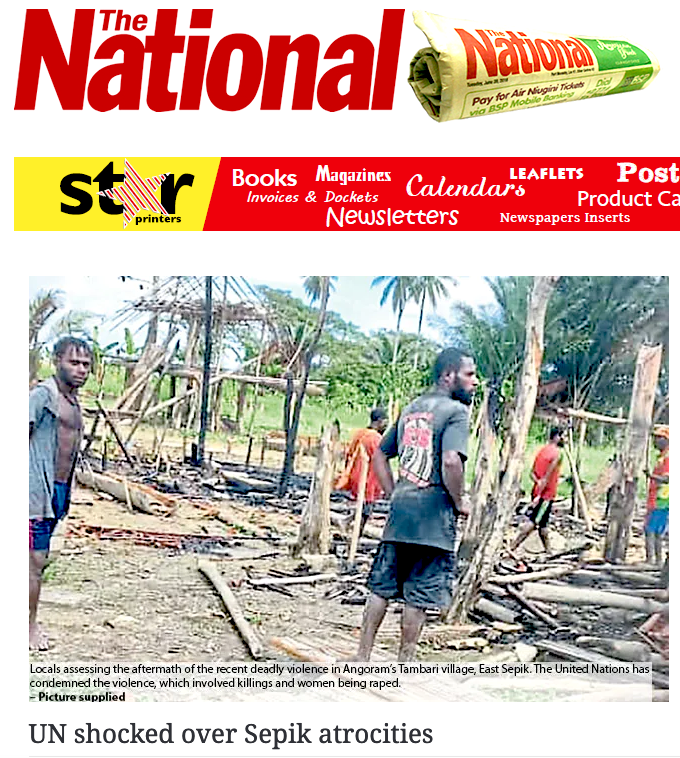Since the arrival of Zionism in Palestine, the impulse of the Palestinians has not been about violence or revenge. The impulse remains the return to normal and natural life, writes Ilan Pappe.
ANALYSIS: By Ilan Pappe
“When we revolt, it’s not for a particular culture. We revolt simply because, for many reasons, we can no longer breathe.”
— Franz Fanon
Since the 1948 Nakba and arguably before, Palestine has not seen levels of violence as high as those experienced since October 7, 2023. But we need to address how this violence is being situated, treated, and judged.
Indeed, mainstream media often portrays Palestinian violence as terrorism while depicting Israeli violence as self-defence. Rarely is Israeli violence labelled excessive.
Meanwhile, international legal institutions hold both sides equally responsible for this violence, which they classify as war crimes.
READ MORE: Middle East on edge as Israel continues to bombard Gaza
Both perspectives are flawed. The first perspective wrongly differentiates between the “immoral” and “unjustified” violence of Palestinians and Israel’s “right to defend itself.”
The second perspective, which assigns blame to both sides, provides a misguided and ultimately harmful framework for understanding the current situation — likely the most violent chapter in Palestine’s modern history.
And all of these perspectives overlook the crucial context necessary to understand the violence that erupted on October 7.
This is not merely a conflict between two violent parties, nor is it simply a clash between a terrorist organisation and a state defending itself.
Rather, it represents a chapter in the ongoing decolonisation of historic Palestine, which began in 1929 and continues today. Only in the future will we know whether October 7 marked an early stage in this decolonisation process or one of its final phases.
Throughout history, decolonisation has been a violent process, and the violence of decolonisation has not been confined to one side only. Apart from a few exceptions where very small, colonised islands were evicted “voluntarily” by colonial empires, decolonisation has not been a pleasant consensual affair by which colonisers end decades, if not centuries, of oppression.
But for this to be our entry point to discuss Hamas, Israel, and the various positions held towards them in the world, one has to acknowledge the colonialist nature of Zionism and therefore recognise the Palestinian resistance as an anti-colonialist struggle — a framework negated totally by American administrations and other Western countries since the birth of Zionism, and so therefore also by other Western countries.
Framing the conflict as a struggle between the colonisers and the colonised helps detect the origin of the violence and shows that there is no effective way of stopping it without addressing its origins.
The root of the violence in Palestine is the evolvement of Zionism in the late 19th century into a settler colonial project.
Like previous settler colonial projects, the main violent impulse of the movement — and later the state that was established — was and is to eliminate the indigenous population. When elimination is not achieved by violence, the solution is always to use more extraordinary violence.
Therefore, the only scenario in which a settler colonial project can end its violent treatment of the indigenous people is when it ends or collapses. Its inability to achieve the absolute elimination of the native population will not deter it from constantly attempting to do so through an incremental policy of elimination or genocide.
The anti-colonial impulse, or propensity, to employ violence is existential — unless we believe that human beings prefer to live as occupied or colonised people.
The colonisers have an option not to colonise or eliminate but rarely cease from doing so without being forced to by the violence of the colonised or by outside pressure from external powers.
Indeed, as is in the case of Israel and Palestine, the best way to avoid violence and counter-violence is to force the settler colonial project to cease through pressure from the outside.
The historical record is worth recollecting to give credence to our claim that the violence of Israel must be judged differently — in moral and political terms — from that of the Palestinians.
This, however, does not mean that condemnation for violation of international law can only be directed towards the coloniser; of course not.
It is an analysis of the history of violence in historical Palestine that contextualises the events of October 7 and the genocide in Gaza and indicates a way to end it.
The history of violence in Modern Palestine: 1882-2000
The arrival of the first group of Zionist settlers in Palestine in 1882 was not, by itself, the first act of violence. The violence of the settlers was epistemic, meaning that the violent removal of the Palestinians by the settlers had already been written about, imagined, and coveted upon their arrival in Palestine — debunking the infamous “land without people” myth.
To translate the imagined removal into reality, the Zionist movement had to wait for the occupation of Palestine by Britain in 1918.
A few years later in the mid-1920s, with assistance from the British mandatory government, 11 villages were ethnically cleansed following the purchase of the regions Marj Ibn Amer and Wadi Hawareth by the Zionist movement from absentee landlords in Beirut and a landowner in Jaffa.
This had never happened before in Palestine. Landowners, whoever they were, did not evict villages that had been there for centuries since Ottoman law enabled land transactions.
This was the origin and the first act of systemic violence in the attempt to dispossess the Palestinians.
Another form of violence was the strategy of “Hebrew Labour” meant to drive out Palestinians from the labour market. This strategy, and the ethnic cleansing, pauperised the Palestinian countryside, leading to forced emigration to towns that could not provide work or proper housing.
It was only in 1929, when these violent actions were coupled with a discourse on constructing a third temple in place of Haram al-Sharif, that the Palestinians responded with violence for the first time.
This was not a coordinated response, but a spontaneous and desperate one against the bitter fruits of the Zionist colonisation of Palestine.
Seven years later, when Britain permitted more settlers to arrive and supported the formation of a nascent Zionist state with its own army, the Palestinians launched a more organised campaign.
This was the first uprising, lasting three years (1936-1939), known as the Arab Revolt. During this period, the Palestinian elite finally recognised Zionism as an existential threat to Palestine and its people.
The main Zionist paramilitary group collaborating with the British army in quelling the revolt was known as the Haganah, meaning “The Defence,” and hence the Israeli narrative to depict any act of aggression against Palestinians as self-defence — a concept reflected in the name of the Israeli army, the Israel Defence Forces.
From the British Mandate period to today, this military power was used to take over land and markets. It was deployed as a “defence” force against the attacks of the anti-colonialist movement and as such was not different from any other coloniser in the 19th and 20th centuries.
The difference is that in most instances of modern history where colonialism has come to an end, the actions of the colonisers are now viewed retrospectively as acts of aggression rather than self-defence.
The great Zionist success has been to commodify their aggression as self-defence and the Palestinian armed struggle as terrorism. The British government, at least until 1948, regarded both acts of violence as terrorism but allowed the worst violence to take place against the Palestinians in 1948 when it watched the first stage of the ethnic cleansing of the Palestinians.
Between December 1947 and May 1948, when Britain was still responsible for law and order, the Zionist forces urbicided, that is obliterated, the main towns of Palestine and the villages around it. This was more than terror; this was a crime against humanity.
After completing the second stage of the ethnic cleansing between May and December 1948, through the most violent means that Palestine has witnessed for centuries, half of Palestine’s population was forcefully expelled, half of its villages destroyed, as well as most of its towns.
Israeli historians would later claim that “the Arabs” wanted to throw the Jews into the sea. The only people who were literally thrown into the sea — and drowned — were those expelled by the Zionist forces in Jaffa and Haifa.
Israeli violence continued after 1948 but was answered sporadically by Palestinians in an attempt to build a liberation movement.
It began with refugees trying to retrieve what was left of their husbandry and crops in the fields, later accompanied by Fedayeen attacking military installations and civilian places. It only gelled into a significant enterprise in 1968, when the Fatah Movement took over the Arab League’s PLO.
The pattern before 1967 is familiar — the dispossessed used violence in their struggle, but on a limited scale, while the Israeli army retaliated with overwhelming, indiscriminate violence, such as the massacre of the village of Qibya in October 1953 where Ariel Sharon’s unit 101 murdered 69 Palestinian villagers, many of them blown up within their own homes.
No group of Palestinians have been spared from Israeli violence. Those who became Israeli citizens were subjected, until 1966, to the most violent form of oppression: military rule. This system routinely employed violence against its subjects, including abuse, house demolitions, arbitrary arrests, banishment, and killings. Among these atrocities was the Kafr Qassem massacre in October 1956, where Israeli border police killed 49 Palestinian villagers.
This same violent system was transited to the occupied West Bank and the Gaza Strip after the June 1967 War. For 19 years, the violence of the occupation was tolerated by the occupied until the mostly non-violent First Intifada in December 1987. Israel responded with brutality and violence that left 1,200 Palestinians dead, 300 of them children — 120,000 were injured and 1,800 homes were demolished. 180 Israelis were killed.
The pattern here continued — an occupied people, disillusioned with their own leadership and the indifference of the region and the world, rose in a non-violent revolt, only to be met with the full, brutal force of the coloniser and occupier.
Another pattern also emerges. The Intifada triggered a renewed interest in Palestine — as has the Hamas attack on October 7 — and produced a “peace process”, the Oslo Accords that raised the hopes of ending the occupation but instead, it provided immunity to the occupier to continue its occupation.
The frustration led, inevitably, to a more violent uprising in October 2000. It also shifted popular support from those leaders who still put their faith in the diplomatic way of ending occupation to those who were willing to continue the armed struggle against it — the political Islamic groups.
Violence in 21st century Palestine
Hamas and Islamic Jihad enjoy great support because of their choice of continuing to fight the occupation, not because of their theocratic vision of a future Caliphate or their particular wish to make the public space more religious.
The horrific pendulum continued. The Second Intifada was met by a more brutal Israeli response.
For the first time, Israel used F-16 bombers and Apache helicopters against the civilian population, alongside battalions of tanks and artillery that led to the 2002 Jenin massacre.
The brutality was directed from above to compensate for the humiliating withdrawal from southern Lebanon forced upon the Israeli army by Hezbollah in the summer of 2000 — the Second Intifada broke out in October 2000.
The direct violence against the occupied people from 2000 took also the form of intensive colonisation and Judaisation of the West Bank and Greater Jerusalem area.
This campaign was translated into the expropriation of Palestinian lands, encircling the Palestinian areas with apartheid walls, and giving a free license to the settlers to perpetrate attacks on Palestinians in the occupied territories and East Jerusalem.
In 2005, Palestinian civil society tried to offer the world a different kind of struggle through the Boycott, Divestment and Sanctions (BDS) movement – a non-violent struggle based on a call to the international community to put a stop to the Israeli colonialist violence, which has not been heeded, so far, by governments.
Instead, Israeli brutality on the ground increased and the Gaza resistance in particular fought back resiliently to the point that forced Israel to evict its settlers and soldiers from there in 2005.
However, the withdrawal did not liberate the Gaza Strip, it transformed from being a colonised space into becoming a killing field in which a new form of violence was introduced by Israel.
The colonising power moved from ethnic cleansing to genocide in its attempt to deal with the Palestinian refusal, in particular in the Gaza Strip, to live as a colonised people in the 21st century.
Since 2006, Hamas and Islamic Jihad have used violence in response to what they view as ongoing genocide by Israel against the people of the Gaza Strip. This violence has also been directed at the civilian population in Israel.
Western politicians and journalists often overlooked the indirect and long-term catastrophic effects of these policies on the Gaza population, including the destruction of health infrastructure and the trauma experienced by the 2.2 million people living in the Gaza ghetto.
As it did in 1948, Israel alleges that all its actions are defensive and retaliatory in response to Palestinian violence. In essence, however, Israeli actions since 2006 have not been retaliatory.
Israel initiated violent operations driven by the wish to continue the incomplete 1948 ethnic cleansing that left half of Palestinians inside historic Palestine and millions of others on Palestine’s borders. The eliminatory policies, as brutal as they were, were not successful in this respect; the desperate bouts of Palestinian resistance have instead been used as a pretext to complete the elimination project.
And the cycle continues. When Israel elected an extreme right-wing government in November 2022, Israeli violence was not restricted to Gaza. It appeared everywhere in historical Palestine. In the West Bank, the escalating violence from soldiers and settlers led to incremental ethnic cleansing, particularly in the southern Hebron mountains and the Jordan Valley. This resulted in an increase in killings, including those of teenagers, as well as a rise in arrests without trial.
Since November 2022, a different form of violence has plagued the Palestinian minority living in Israel. This community faces daily terror from criminal gangs that clash with each other, resulting in the murder of one or two community members each day. The police often ignore these issues. Some of these gangs include former collaborators with the occupation who were relocated to Palestinian areas following the Oslo agreement and maintain connections with the Israeli secret service.
Additionally, the new government has exacerbated tensions around the Al-Aqsa Mosque Compound, permitting more frequent and aggressive incursions into the Haram al-Sharif by politicians, police, and settlers.
It is too difficult to know yet whether there was a clear strategy behind the Hamas attack on October 7, or whether it went according to plan or not, whatever that plan may be. However, 17 years under Israeli blockade and the particularly violent Israeli government of November 2022 added to their determination to try a more drastic and daring form of anti-colonialist struggle for liberation.
Whatever we think about October 7, and we do not have yet a full picture, it was part of a liberation struggle. We may raise both moral questions about Hamas’ actions as well as questions of efficacy; liberation struggles throughout history have had their moments when one could raise such questions and even criticism.
But we cannot forget the source of violence that forced the pastoral people of Palestine after 120 years of colonisation to adopt armed struggle alongside non-violent methods.
On July 19, 2024, the International Court of Justice issued a significant ruling regarding the status of the West Bank, which went largely unnoticed. The court affirmed that the Gaza Strip is organically connected to the West Bank, and therefore, under international law, Israel remains the occupying power in Gaza. This means that actions against Israel by the people of Gaza are considered part of their right to resist occupation.
Once again, under the guise of retaliation and revenge, Israeli violence following October 7 bears the marks of its previous exploitation of cycles of violence.
This includes using genocide as a means to address Israel’s “demographic” issue — essentially, how to control the land of historical Palestine without its Palestinian inhabitants. By 1967, Israel had taken all of historical Palestine, but the demographic reality thwarted the goal of complete dispossession.
Ironically, Israel established the Gaza Strip in 1948 as a receptor for hundreds of thousands of refugees, “willing” to concede 2% of historical Palestine to remove a significant number of Palestinians expelled by its army during the Nakba.
This particular refugee camp has proven more challenging to Israel’s plans to de-Arabize Palestine than any other area, due to the resilience and resistance of its people.
Any attempt to stop Israel’s genocide in Gaza must be made in two ways. First, immediate action is needed to stop the violence through a ceasefire and, ideally, international sanctions on Israel. Second, it is crucial to prevent the next phase of the genocide, which could target the West Bank. This requires the continuation and intensification of the global solidarity movement’s campaign to pressure governments and policymakers into compelling Israel to end its genocidal policies.
Since the late 19th century and the arrival of Zionism in Palestine, the impulse of the Palestinians has not been about violence or revenge. The impulse remains the return to normal and natural life, a right that has been denied to the Palestinians for more than a century, not only by Zionism and Israel but by the powerful alliance that allowed and immunised the project of the dispossession of Palestine.
This is not a wish to romanticise or idealise Palestinian society. It was, and would continue to be, a typical society in a region where tradition and modernity often coexist in a complex relationship, and where collective identities can sometimes lead to divisions, especially when external forces seek to exploit these differences.
However, pre-Zionist Palestine was a place where Muslims, Christians, and Jews coexisted peacefully, and where most people experienced violence only rarely — likely less frequently than in many parts of the Global North.
Violence as a permanent and massive aspect of life can only be removed when its source is removed. In the case of Palestine, it is the ideology and praxis of the Israeli settler state, not the existential struggle of the colonised Palestinian people.
Ilan Pappe is an Israeli historian and socialist activist. He is a professor of history at the College of Social Sciences and International Studies at the University of Exeter in the United Kingdom, director of the university’s European Centre for Palestine Studies, and co-director of the Exeter Centre for Ethno-Political Studies. He is also the author of the bestselling The Ethnic Cleansing of Palestine (Oneworld) and many other books. Republished from The New Arab.
This post was originally published on Asia Pacific Report.

(@uriohau) December 1, 2022

